3 hrs, 7.7 kms
Day Totals: 16 hrs, 15
.1
Down in the town of Soufriere nestled between the bay and jungle mountains on all side, I quickly set to looking for some lodging. Online I'd only found one overpriced hotel, so I'm crossing my fingers and hoping that the cheap places don't advertise online. I spot a tourism office and figure it wouldn't hurt to ask.
"Where can I find the cheapest guesthouse?" I ask. The lady points to a cluster of building at the far end of town, pressed against the mountainside.
Sure enough--it is cheap! (relatively speaking). Soufriere is definitely going to be my home for a while.
The day is still young, so I figure I'll go ahead a check out the waterfall that's just a mile or two away. I head inland, up a jungle path until I find the entrance. I'm a bit disgruntled at the 7 dollar entrance fee--especially after I paid 1 dollar for the waterfall in Grenada, but I finally decide to cough up the cash
.
Inside is a beautiful garden with a sign that this estate used to belong to the family of the wife of Napoleon. It is still owned and run by a French family as a relic of another era.
The waterfall itself is a sudden reminder of the dark side of this beautiful location: although it doesn't look like it, hidden in the jungle is an active volcano... a volcano that could wipe out this town someday. In fact, this stream is constantly spewing out minerals from this volcano and changes color depending on which mineral is dominant. Today it's sort of grey.
Back in town, I head down to a small park area along the bay, and gaze up at the beautiful Pitons, a stones throw away. I'm told that you can climb them... and I think I definitely need to give it a try.
A lady with a small child sits next to me. At first I find it a bit odd that she strikes up a conversation with me--but it does seems she just wants to chat and nothing more
. I'm more used to the Middle East/North Africa where a woman approaching a male stranger for a conversation is all but unthinkable.
She works at the local grocery store and lives with her boyfriend and son. She dreams of visiting London someday... I wonder if that will ever happen with what she's earning...
I ask her why there isn't much farming here in St Lucia. "My family has a farm up in the mountains. But the floods destroyed most of our trees... in fact, my grandfather died in the floods a couple of years ago. It seems like every couple of years there's a hurricane or flood and it destroys our crops. It's a very hard life..."
I suddenly feel a lot more sympathetic for Caribbean folks who give up the farming life for life in the city.
As we people watch folks going past, she points out "The owner of the shop there is Indian"
"She's from the country of India?" I ask
"No
... no... here we call anyone with straight hair 'Indian'--it's not about where they're from. I don't know why I don't have straight hair--my mother did..."
Then she asks me a question that catches me off guard. "Why is everyone in St Lucia black?" she asks.
Seems like an odd question to ask a guy who just arrived on you island, but she seems sincere in her curiousity. I don't know if I should give her a brief history lesson on her country or not...
A couple days later, another local lady asks me the same question. This makes me wonder... what do they teach kids in school about the history of their country? Do they even know that their ancestors were brought from Africa as slaves? That African, native Caribs and South Asian indentured laborers intermarried creating the ethnic mix they are today (explaining why in one family some kids might have straight hair and the others curly)
It's such a vivid contrast to much of Africa, where tribal identities run back thousands of years, and people are categorized and pigeon-holed based on their tribal identity
. Where you're taught growing up that you should care about people of your tribe... and distrust everyone else... this making it very difficult to build a unified, functional society that works for the common good of all.
Maybe people here are better off, NOT having any clear tribal identity... NOT being overly aware of their history.
I do love visiting places where tradition and culturaly identity stretches on for milenniums... but that does seems to be a recipe for unresolved conflict--as there's always a reason to hate the neighboring tribe for whatever they did to your tribe at sometime in history.... So this is actually quite refreshing, seeing a culture where those differences have been forgotten.
I head up to the church plaza and ponder on this a bit more. Slavery was a terrible thing--but it did have this intriguing side effect: it eliminated tribalism.
1961 A Stunning Sight
Wednesday, February 11, 2015
 Soufrière, Saint Lucia
Soufrière, Saint Lucia
Other Entries
-
1711944 The Colonial Tunnel
Feb 092 days prior Byera Village, Grenadines/St Vincentphoto_camera6videocam 0comment 0
Byera Village, Grenadines/St Vincentphoto_camera6videocam 0comment 0 -
1721945 A Beautiful View
Feb 092 days prior Chester Cottage, Grenadines/St Vincentphoto_camera7videocam 0comment 0
Chester Cottage, Grenadines/St Vincentphoto_camera7videocam 0comment 0 -
1731946 Unwelcome Company
Feb 092 days prior Georgetown, Grenadines/St Vincentphoto_camera7videocam 0comment 0
Georgetown, Grenadines/St Vincentphoto_camera7videocam 0comment 0 -
1741947 In the Shadow of the Volcano
Feb 092 days prior Orange Hill, Grenadines/St Vincentphoto_camera6videocam 0comment 0
Orange Hill, Grenadines/St Vincentphoto_camera6videocam 0comment 0 -
1751948 The Mental Hospital
Feb 092 days prior Overland And Magun, Grenadines/St Vincentphoto_camera9videocam 0comment 0
Overland And Magun, Grenadines/St Vincentphoto_camera9videocam 0comment 0 -
1761949 The Northern Tip
Feb 092 days prior Sandy Bay, Grenadines/St Vincentphoto_camera7videocam 0comment 0
Sandy Bay, Grenadines/St Vincentphoto_camera7videocam 0comment 0 -
1771950 Gritty Town, Beautiful Bay
Feb 101 day prior Chateaubelair, Grenadines/St Vincentphoto_camera7videocam 0comment 0
Chateaubelair, Grenadines/St Vincentphoto_camera7videocam 0comment 0 -
1781951 Over the Ridge
Feb 101 day prior Petit Bordel, Grenadines/St Vincentphoto_camera6videocam 0comment 0
Petit Bordel, Grenadines/St Vincentphoto_camera6videocam 0comment 0 -
1791952 Down the West Side
Feb 101 day prior Troumaka, Grenadines/St Vincentphoto_camera10videocam 0comment 0
Troumaka, Grenadines/St Vincentphoto_camera10videocam 0comment 0 -
1801953 Highland Village
Feb 101 day prior Coulls Hill, Grenadines/St Vincentphoto_camera8videocam 0comment 0
Coulls Hill, Grenadines/St Vincentphoto_camera8videocam 0comment 0 -
1811954 Lunch and a Swim in the Bay
Feb 101 day prior Spring Village, Grenadines/St Vincentphoto_camera15videocam 0comment 0
Spring Village, Grenadines/St Vincentphoto_camera15videocam 0comment 0 -
1821955. High up the Mountains
Feb 101 day prior Walillabou, Grenadines/St Vincentphoto_camera6videocam 0comment 0
Walillabou, Grenadines/St Vincentphoto_camera6videocam 0comment 0 -
1831956 End of the Hike
Feb 101 day prior Barrouallie, Grenadines/St Vincentphoto_camera8videocam 0comment 0
Barrouallie, Grenadines/St Vincentphoto_camera8videocam 0comment 0 -
1841957 The Guy from Brooklyn
Feb 101 day prior Layou, Grenadines/St Vincentphoto_camera6videocam 0comment 0
Layou, Grenadines/St Vincentphoto_camera6videocam 0comment 0 -
1851958 Finally a "City"!
Feb 11earlier that day Castries, Saint Luciaphoto_camera27videocam 0comment 0
Castries, Saint Luciaphoto_camera27videocam 0comment 0 -
1861959 Fishing Town
Feb 11earlier that day Anse La Raye, Saint Luciaphoto_camera13videocam 0comment 0
Anse La Raye, Saint Luciaphoto_camera13videocam 0comment 0 -
1871960 Riding with the French Guy
Feb 11earlier that day Canaries, Saint Luciaphoto_camera9videocam 0comment 0
Canaries, Saint Luciaphoto_camera9videocam 0comment 0 -
1881961 A Stunning Sight
Feb 11 Soufrière, Saint Luciaphoto_camera51videocam 0comment 0
Soufrière, Saint Luciaphoto_camera51videocam 0comment 0 -
1891962 Beyond the Pitons
Feb 121 day later La Pointe, Saint Luciaphoto_camera14videocam 0comment 0
La Pointe, Saint Luciaphoto_camera14videocam 0comment 0 -
1901963 The One Cow Farmer
Feb 121 day later Choiseul, Saint Luciaphoto_camera15videocam 0comment 0
Choiseul, Saint Luciaphoto_camera15videocam 0comment 0 -
1911964 Race to the Tip
Feb 121 day laterLaboriephoto_camera11videocam 0comment 0 -
1921965 The Funeral
Feb 132 days later Vieux Fort, Saint Luciaphoto_camera10videocam 0comment 0
Vieux Fort, Saint Luciaphoto_camera10videocam 0comment 0 -
1931966 A Dreary Hike
Feb 132 days later Micoud, Saint Luciaphoto_camera9videocam 0comment 0
Micoud, Saint Luciaphoto_camera9videocam 0comment 0 -
1941967 A Disturbing Closer Look
Feb 132 days later Dennery, Internationalphoto_camera8videocam 0comment 0
Dennery, Internationalphoto_camera8videocam 0comment 0 -
1951968 Strumming in the Banana Plantation
Feb 143 days later Roseau, Saint Luciaphoto_camera2videocam 0comment 0
Roseau, Saint Luciaphoto_camera2videocam 0comment 0 -
1961969 The Mangrove Swamp
Feb 143 days later Marigot Bay, Saint Luciaphoto_camera14videocam 0comment 0
Marigot Bay, Saint Luciaphoto_camera14videocam 0comment 0 -
1971970 Breakfast with a View
Feb 154 days later Anse La Verdure, Saint Luciaphoto_camera12videocam 0comment 0
Anse La Verdure, Saint Luciaphoto_camera12videocam 0comment 0 -
1981971 Jungle Hike
Feb 154 days later Belvedere, Saint Luciaphoto_camera9videocam 0comment 0
Belvedere, Saint Luciaphoto_camera9videocam 0comment 0 -
199Postvisit: The Smoothie Guy
Feb 165 days later Castries, Saint Luciaphoto_camera16videocam 0comment 0
Castries, Saint Luciaphoto_camera16videocam 0comment 0 -
2001972 The Exclusive Resorts
Feb 176 days later Gros Islet, Saint Luciaphoto_camera24videocam 0comment 0
Gros Islet, Saint Luciaphoto_camera24videocam 0comment 0 -
2011973 Search of a Guesthouse
Feb 187 days later St Lawrence Gap, Barbadosphoto_camera25videocam 0comment 0
St Lawrence Gap, Barbadosphoto_camera25videocam 0comment 0 -
2021974 Beach Jam Session
Feb 187 days later Oistins, Barbadosphoto_camera14videocam 0comment 0
Oistins, Barbadosphoto_camera14videocam 0comment 0 -
2031975 "Real" Barbados
Feb 187 days later Gemswick, Barbadosphoto_camera2videocam 0comment 0
Gemswick, Barbadosphoto_camera2videocam 0comment 0 -
2041976 Reaching the East Coast
Feb 187 days later Saint Martins, Barbadosphoto_camera5videocam 0comment 0
Saint Martins, Barbadosphoto_camera5videocam 0comment 0 -
2051977 The Crowded West
Feb 198 days later Holetown, Barbadosphoto_camera10videocam 0comment 0
Holetown, Barbadosphoto_camera10videocam 0comment 0 -
2061978 The Super-rich
Feb 198 days later Gibbs, Barbadosphoto_camera10videocam 0comment 0
Gibbs, Barbadosphoto_camera10videocam 0comment 0

 Soufrière, Saint Lucia
Soufrière, Saint Lucia
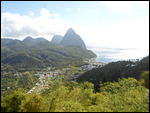

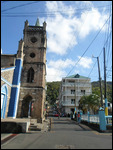
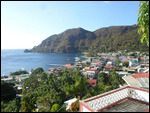




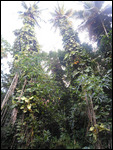
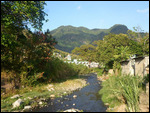
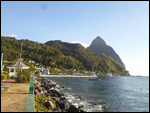
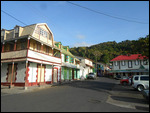
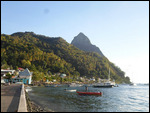
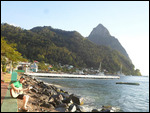
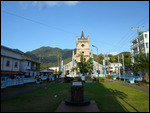
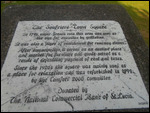
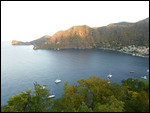

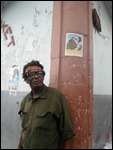
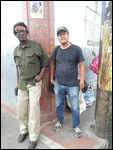
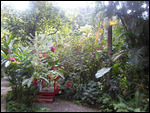
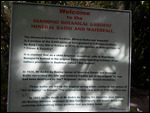
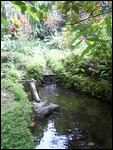
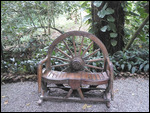
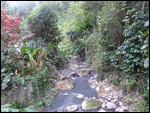
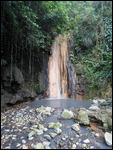
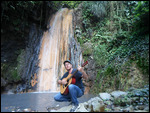
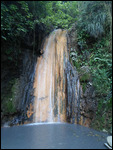
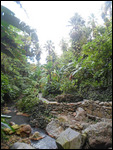

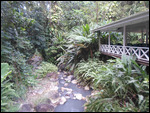

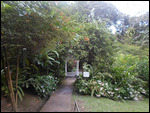
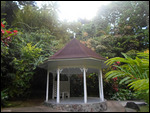
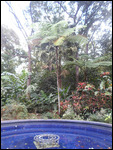
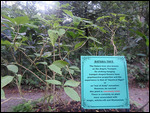
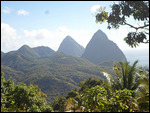
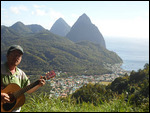
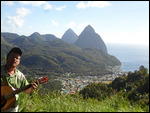
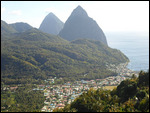
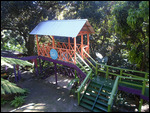
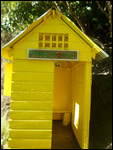
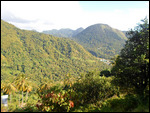
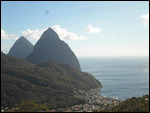
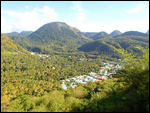
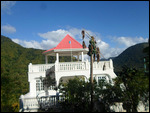
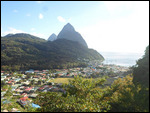
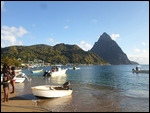



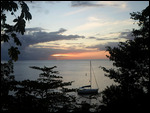
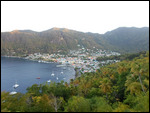
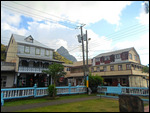
2025-05-22